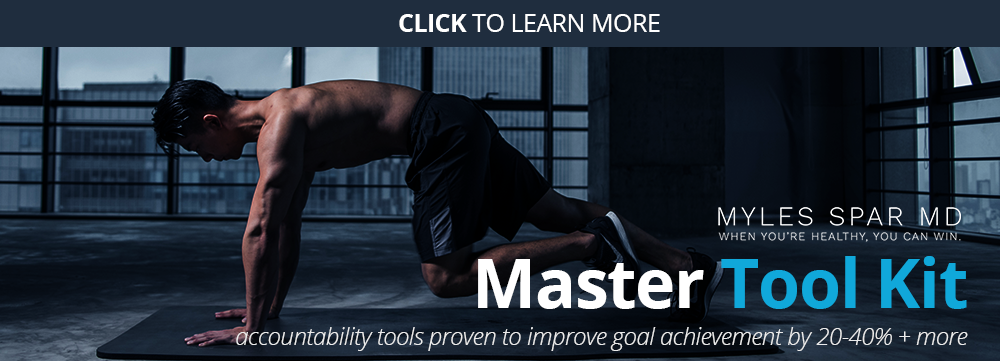Hormone imbalance is an issue often discussed in women’s health, but it’s a problem for men, too. Remember puberty? Your hormones were going crazy, and it probably affected your quality of life. As you age, your hormone levels can get similarly out of whack, causing symptoms like shrinking muscles, lagging libido, and lower sperm count.
One of the most common hormonal imbalances affecting males is related to reduced testosterone levels—one in four men over 30 has low testosterone, and it impacts many aspects of their physiology.
But while low testosterone may be common, it’s not necessarily inevitable. Here are five natural ways to boost this essential hormone.
Use Science-backed Supplements
I always urge my patients to exercise extreme caution when considering supplements to boost testosterone. Quite frankly, a lot of the products out there are total scams that are at best a waste of money and at worst a hazard to your health.
Here are a couple supplements that have legitimately been shown to be effective for boosting testosterone.
Zinc: This essential trace mineral affects testosterone levels, and zinc deficiency has been linked to hypogonadism (low testosterone). Research suggests supplementing with zinc can help modulate testosterone levels, and it has also been shown to help with sexual competency and erectile dysfunction. Considering this information, it’s likely unsurprising that zinc is also on my list of top five supplements to increase sex drive.
Ashwagandha: Ashwagandha is a potent medicinal herb that has been shown to bump up testosterone levels, improving sperm count and overall fertility. In a study where men with low sperm counts took 675 mg of ashwagandha every day for three months, testosterone levels increased by 17% while sperm counts went up by 167%. Those study participants who took a placebo showed little to no improvement in their fertility.
Shilagit: This Ayurvedic botanical is tar-like and found in the Himalayas. Its high fulvic acid content gives it some great health benefits, including boosting T. It’s a bit hard on the palate, as it usually comes as a paste, but because it’s only recently started gaining popularity, it will probably soon be easier to find in more accessible forms.
Lift Weights
Lots of studies indicate that both cardiovascular exercise and strength training are effective for amping up testosterone levels, but lifting weights seems to produce the best results. To get the most testosterone-boosting benefit from your strength training sessions:
- Do exercises that utilize many muscles (as opposed to isolating them, as with bicep curls)
- Focus on heavier weights and fewer repetitions instead of lighter weights and more reps
- Shorten the periods of rest between sets
Keep Stress in Check: Cortisol is the Anti-T
Chronic stress is associated with a ton of different health problems, and science suggests low testosterone is one of them. When your body is stressed, it releases a hormone called cortisol, and it appears elevated cortisol levels can quickly lower testosterone. In fact, the two seem to work like a seesaw—as cortisol goes up, testosterone goes down.
There are many different ways to manage stress, and some of them (like exercise) offer additional testosterone-boosting benefits. Personally, I’m a big proponent of meditation. It’s simple, inexpensive, and best of all, proven to work for relieving stress and anxiety. If you want to learn to meditate but aren’t sure where to start, I’ve listed my favorite mindfulness meditation apps here.
Eat Enough, but Not Too Much
Obesity has been associated with low testosterone, which is just one more reason to maintain a healthy weight. On the other hand, strict dieting and calorie restriction can also reduce testosterone. Adequate amounts of carbohydrates, fats, and proteins are all important for keeping testosterone levels where they should be.
To make sure you’re getting the nutrients you need, focus on foods like fruits, vegetables, whole grains, and plant-based protein. See my post here for more information on eating whole foods for health.
Get Some Sleep
Your body uses the time you spend sleeping to repair itself, and not getting enough rest can take a massive toll. Hormone levels can be dramatically affected by the amount of sleep you get. In one study where men underwent one week of sleeping only five hours a night, daytime testosterone levels were decreased by 10% to 15%.
Many of us are burning the candle at both ends these days, working too hard and staying up too late. For men looking to improve testosterone levels—and their overall vitality—prioritizing sleep is a relatively small thing that can pay big results.
Want to learn more about natural ways to boost testosterone and achieve optimum health? Sign up for Dr. Spar’s Performance Health Bulletin and get the best scientifically-validated health tips and articles sent to your inbox.
Myles Spar, MD, MPH is board-certified in Internal Medicine and in Integrative Medicine. As a clinician, teacher and researcher on faculty of two major medical centers, he has led the charge for a more proactive, holistic and personalized approach to care that focuses on cutting edge technology and preventative care. Dr. Spar has traveled with the NBA, presented a TEDx Talk, appeared on Dr. Oz, and been featured in publications such as the Men’s Journal and the Los Angeles Times.



